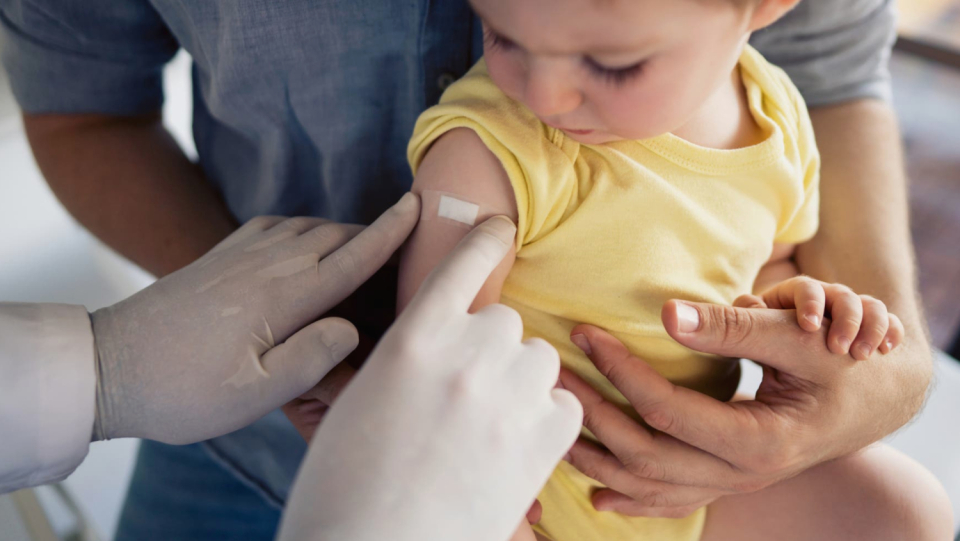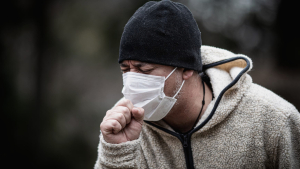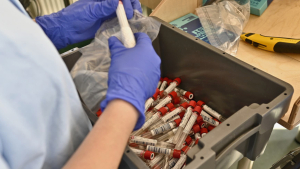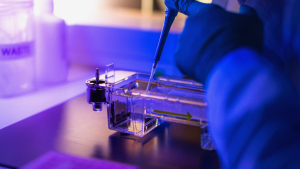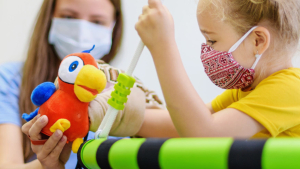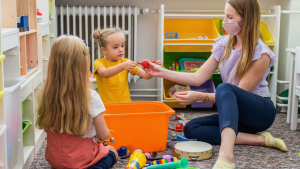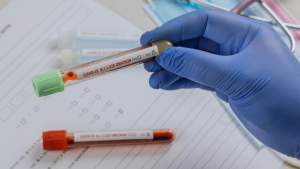In small children treated with antibiotics, the protective effect of vaccinations is reduced. This was the result of a study by Timothy J. Chapman from the Rochester General Hospital Research Institute and his team. As the reason for the low failing antibody levels, the experts cite the intestinal microbioma. Apparently the antibiotics kill intestinal bacteria that otherwise promote the immune system. The intestinal bacteria of the children for the study, which was published in the specialist magazine »Pediatrics«, were specifically analyzed.
The working group examined blood samples taken from 560 children between the ages of 6 and 24 months. The researchers tested the antibody count for several vaccines that are among the recommended childhood vaccinations: diphtheria, tetanus, polio, whooping cough, influenza and pneumococcus. Chapman and his team also found out from the parents and from medical records whether and how often the infants were given antibiotics. Thus, 342 of the 560 participants in the experiment had taken antibiotics once or more often. The antibody levels of the vaccinations were lower in them than in the 218 other children who had not received antibiotic treatment so far. The frequency of the therapy also played a role: the more often the children had already taken antibiotics, the fewer antibodies from the vaccination reaction they had.
The intestine may be the source.
According to a press release from the Science Media Center, the antibody level was below a sufficient level of protection, especially in those children who were treated with antibiotics between the ages of nine and twelve months.
It has been known for a long time that antibiotics - which without a question are an indispensable drug against many bacterial diseases - can also damage the microbioma in the intestine. Ulrich Schaible from the Borstel Research Center, Leibniz Center for Medicine and Biosciences, which was not involved in the new study, considers the data and its evaluation to be robust. According to the Science Media Center, it proposes that for small children "shorter treatment schemes are being developed that can be effective even in the short time, as well as so -called› point of care diagnostics ‹, which can promptly display the antibiotic effectiveness Gift can be shortened «.
Cornelia Gottschick from the Martin Luther University Halle-Wittenberg lists further possibilities on how to counteract the side effect. For the doctor, it is conceivable that a reduced immune protection can be compensated for by a further vaccination. But for this, the benefits of additional vaccinations would have to be carefully weighed. "It is possible that taking probiotics, which are supposed to protect the intestinal microbiome while taking antibiotics, may reduce the effect observed in the study," says Gottschick, according to the Science Media Center. However, further studies are necessary for this.
As the US researchers emphasize, their work is restricted by the fact that the children come from one place-the city of Rochester in the state of New York. In addition, blood samples could not have been used regularly. After all, it is the first study of this kind ever that was carried out on children and not on adults or test animals.







